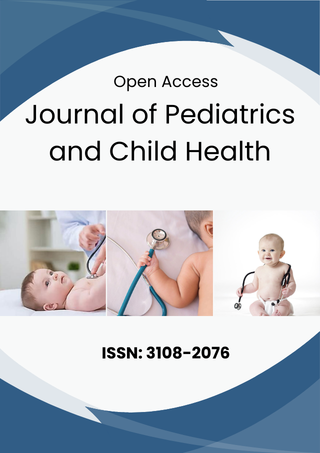Publication ethics & malpractice statement
At Confmeets - Journal of Pediatrics and Child Health (jpch), we don't just publish research we champion ethical rigor, intellectual honesty, and scholarly accountability. Our commitment goes beyond standard guidelines; we cultivate a publishing ecosystem where transparency, fairness, and scientific integrity are non-negotiable.
Inspired by global standards like those of the International Committee of Medical Journal Editors (ICMJE), we've woven ethical principles into every stage of our editorial process ensuring that every manuscript we publish advances knowledge responsibly.
Rigorous, Fair, and Unbiased Evaluation
Every submission to JPP undergoes a multi-layered scrutiny process
- Preliminary Evaluation: The editorial team conducts an initial review to determine the manuscript's alignment with the journal's scope, its originality, and overall academic quality
- Double-Blind Peer Review: Independent experts evaluate submissions anonymously, eliminating bias and ensuring objectivity
- Ethical Oversight: For studies involving sensitive topics, our Confmeets Research Ethics Panel may engage external specialists to safeguard ethical compliance
If a manuscript fails to meet ethical standards, we reserve the right to pause, modify, or terminate the review process.
Originality: The Heart of Scholarly Contribution
We demand authenticity. Plagiarism -whether text, data, or ideas is unacceptable. Using advanced plagiarism detection tools, we scrutinize every submission. Consequences for ethical breaches include:
- Immediate rejection of plagiarized work.
- Retraction or correction of published articles with integrity violations
- Recycled research (unless properly disclosed, e.g., preprints, theses, or significantly revised conference papers).
- "Salami-slicing"—fragmenting data to inflate publications
- Duplicate submissions (if discovered, manuscripts may be merged or withdrawn)
Citation Ethics: Quality over Quantity
We prohibit:
- Excessive self-citation (unless academically justified)
- "Citation stacking" to manipulate journal metrics
- Coerced references suggested by reviewers without merit.
Data Integrity: No Compromises
- Images must be unaltered (beyond minimal enhancements)
- Violations may lead to rejection, retraction, or institutional investigation
- Violations may lead to rejection, retraction, or institutional investigation
Authorship: Credit Where It's due
Who qualifies as an author?
Only those who made substantial intellectual contributions (using CRediT taxonomy for role clarity).
Corresponding authors must:- Provide an ORCID iD
- Confirm all co-authors have approved the final manuscript
- Justify any authorship changes with written consent
Conflicts of Interest: Full Disclosure Required
Authors must declare:
- Financial ties (grants, payments, sponsorships)
- Institutional affiliations (employment, advisory roles)
- Personal or ideological biases that could influence research
A "Conflicts of Interest" section is mandatory, along with a "Funding Statement" detailing financial support.
Editorial & Reviewer Responsibilities: Guardians of Integrity
- Editors & reviewers must recuse themselves if conflicts exist
- Manuscripts are confidential no unauthorized sharing
- Ethical concerns? Report them privately to the editor
Consequences for Ethical Violations
Breaching our policies triggers serious repercussions:
- Rejection of current/future submissions
- Submission embargo (1-3 years)
- Termination of editorial/reviewer roles
- Institutional notification in severe cases
Whistleblowers are protected. Report concerns to the Confmeets Research Integrity Office.
Correcting the Record: When Errors Occur
- Corrections for minor errors
- Expressions of Concern for unresolved issues
- Retractions for severe breaches (following ICMJE & COPE guidelines)
Authors will always be consulted before action is taken because integrity is a collaborative effort.
Article Processing Timeline
| 2-5 Days | Initial Quality & Plagiarism Check |
| 15 Days |
Peer Review Feedback |
| 85% | Acceptance Rate (after peer review) |
| 30-45 Days | Total article processing time |
Journal Flyer


